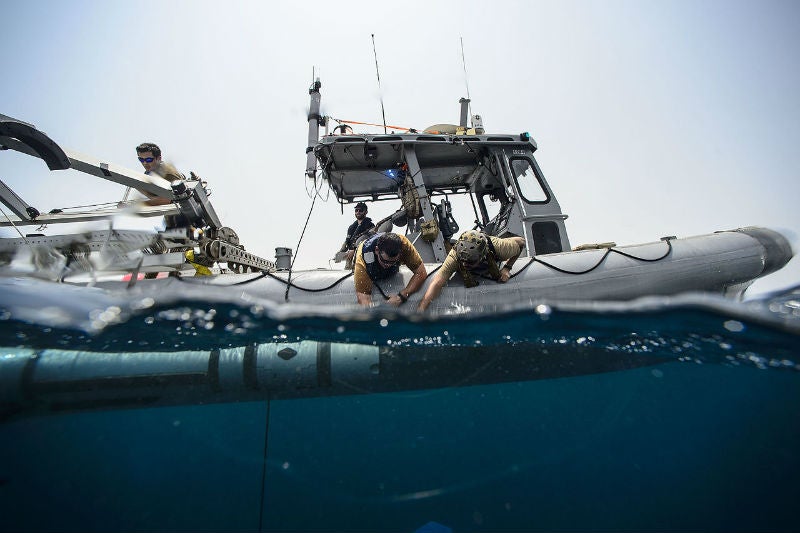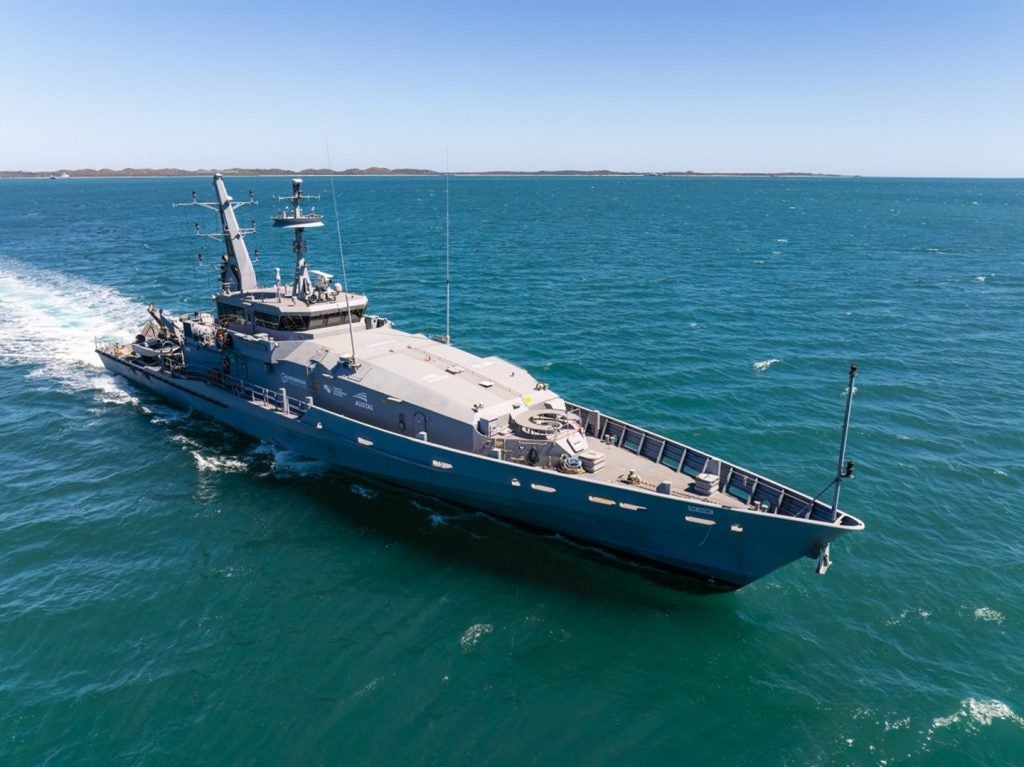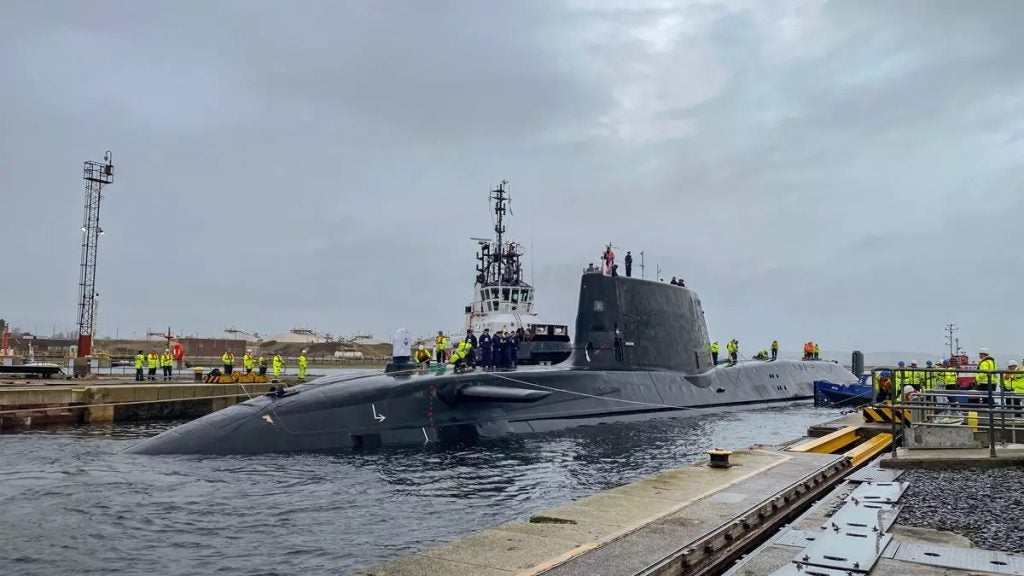
The UK Ministry of Defence (MOD) has launched a competition to develop an autonomous version of an existing large underwater vehicle (UUV).
The MOD is seeking proposals to develop a platform to address the Royal Navy’s need to understand the utility and operational boundaries of an autonomously operating unmanned underwater vehicle (UUV) system.
According to the competition announcement from the Defence, Science and Technology Laboratory (Dstl), the MOD has “an enduring requirement for an increased presence within the underwater battlespace and is looking to address the lack of current options in order to increase the number of delivery ready platforms.
“Though it is possible to increase mere presence in the underwater battlespace with smaller, discrete, autonomous systems, these cannot complete many of the operations currently undertaken by larger manned assets. Therefore the combined future need is for a fully autonomous system of the size and capability of current manned systems.”
Around £2.5m in funding will be made available for the UK MOD UUV competition. The programme will be carried out over two stages.
Under the first stage, the winning bidder will research, design and refit an existing vehicle and perform a short seaworthy/autonomy test.
How well do you really know your competitors?
Access the most comprehensive Company Profiles on the market, powered by GlobalData. Save hours of research. Gain competitive edge.

Thank you!
Your download email will arrive shortly
Not ready to buy yet? Download a free sample
We are confident about the unique quality of our Company Profiles. However, we want you to make the most beneficial decision for your business, so we offer a free sample that you can download by submitting the below form
By GlobalDataStage two will involve more in-depth testing to understand the future utility and concept of operations.
During the second stage, the system is expected to undergo testing in representative environments for extended periods. The sea trials in this stage may be carried out for up to two years.
Through the competition, the MoD is eyeing a flexible UUV that can host different payloads/sensors and can be utilised in various testing scenarios.
The MOD said in a statement: “Developing and testing the potential capability to deliver these future operational requirements is not possible with current Royal Navy assets and requires research and development of a larger more payload-flexible autonomous test system in partnership with commercial suppliers.
“It is envisaged that this will be achieved, for this competition, by re-fitting an existing large asset with an autonomous control system to develop a test-ready autonomous underwater vehicle.”
These tests will give an understanding about the capability limits of a UUV, to assist in the development of future operational requirements and the design of future capabilities, the MOD noted.
The research programme will help inform the future utility and concept of operations of Extra-Large UUVs, such as the
These future vehicles are expected to possess payload-agnostic spaces of greater than 2m3 and capable of holding two metric tonnes.
The requirements of the proposed system include the ability to operate independently for a minimum of three months and to provide flexible, accurate and timely covert intelligence gathering capability.
The system needs to possess an operational range of up to 3,000nm and should be able to provide an anti-submarine warfare barrier capability.
Recently, the MOD announced plans to invest in the development of innovative technology for the Royal Navy, including robots and autonomous mine-hunters.







